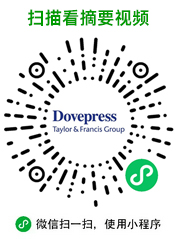100763
论文已发表
提 交 论 文
注册即可获取Ebpay生命的最新动态
注 册
IF 收录期刊
- 3.3 Breast Cancer (Dove Med Press)
- 3.4 Clin Epidemiol
- 2.5 Cancer Manag Res
- 2.9 Infect Drug Resist
- 3.5 Clin Interv Aging
- 4.7 Drug Des Dev Ther
- 2.7 Int J Chronic Obstr
- 6.6 Int J Nanomed
- 2.5 Int J Women's Health
- 2.5 Neuropsych Dis Treat
- 2.7 OncoTargets Ther
- 2.0 Patient Prefer Adher
- 2.3 Ther Clin Risk Manag
- 2.5 J Pain Res
- 2.8 Diabet Metab Synd Ob
- 2.8 Psychol Res Behav Ma
- 3.0 Nat Sci Sleep
- 1.8 Pharmgenomics Pers Med
- 2.7 Risk Manag Healthc Policy
- 4.2 J Inflamm Res
- 2.1 Int J Gen Med
- 4.2 J Hepatocell Carcinoma
- 3.7 J Asthma Allergy
- 1.9 Clin Cosmet Investig Dermatol
- 2.7 J Multidiscip Healthc

A Narrative Review on the Non-Pharmacologic Interventions in Post-Stroke Depression
Authors Wijeratne T, Sales C, Wijeratne C
Received 30 October 2021
Accepted for publication 10 June 2022
Published 7 July 2022 Volume 2022:15 Pages 1689—1706
DOI http://doi.org/10.2147/PRBM.S310207
Checked for plagiarism Yes
Review by Single anonymous peer review
Peer reviewer comments 3
Editor who approved publication: Professor Igor Elman
Abstract: Stroke is a major cause of death and disability globally. Post-stroke depression (PSD) is a major driver for poor recovery and poor quality of life with extra burden for the patient and the caregiver. We have previously shown the inflammatory basis of PSD with associated bioenergetic failure, disruption of the blood-brain barrier, cell death, and persistent maladapted inflammation, making the PSD a norm rather than the exception, highlighting the unmet need for therapeutic intervention in PSD across the recovery trajectory. In this era, various interventions are focused on pharmacotherapy; however, non-pill-based medication should also be explored as post-stroke patients are likely to suffer from the adverse effects of polypharmacy. This narrated review explores the status of non-pharmacological interventions in managing PSD. We performed a PubMed search using pre-specified keywords looking at various non-pharmacologic approaches for the management of PSD. Worldwide, approaches such as non-invasive brain stimulation, behavioral and psychosocial therapy, as well as exercise, acupuncture, music, literature, and art therapies are available as monotherapy or adjunctive treatment for PSD. While current literature shows convincing results on the benefits of non-pharmacologic interventions, more robust studies are necessary to determine its utility in PSD.
Keywords: stroke, depression, non-pharmacological intervention, disability
